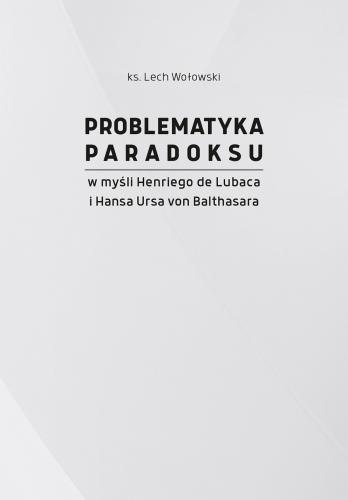The Problematics of Paradox in the Thought of Henri de Lubac and Hans Urs von Balthasar
Keywords:
Balthasar, Lubac, paradoxSynopsis
The present work examines the problematics of the role and place of paradox in dogmatic reflection based on the analysis of the works of Henri de Lubac and Hans Urs von Balthasar. The problem is looked upon from two perspectives. The first perspective applies to the first two chapters which deal with the analysis of individual theological paradoxes present in the thought of each of these authors separately. In Chapter I – devoted to Lubac — the reflection concerns the paradox of God’s knowability and unknowability, the paradox of the Church, the paradox of atheistic humanism and the paradox of man. In Chapter II — devoted to Balthasar — we focus on the paradox of unity and plurality, the paradox of freedom in the context of obedience and responsibility, the Trinitarian-Christological paradox of faith, hope and love, and the paradox of God’s kenosis. The second perspective concerns the meta-reflection, carried out in the third chapter, on the place of paradox within the framework of methodological instruments used by both authors. In particular, we discuss the problem of the relation of the category of paradox to that of synthesis and mystery in Lubac and to dialectics and analogy in Balthasar. These analyzes constitute the basis for the thesis that in the works of both thinkers one can talk about the emergence of a new method, referred to in this study as the “method of paradox”.



